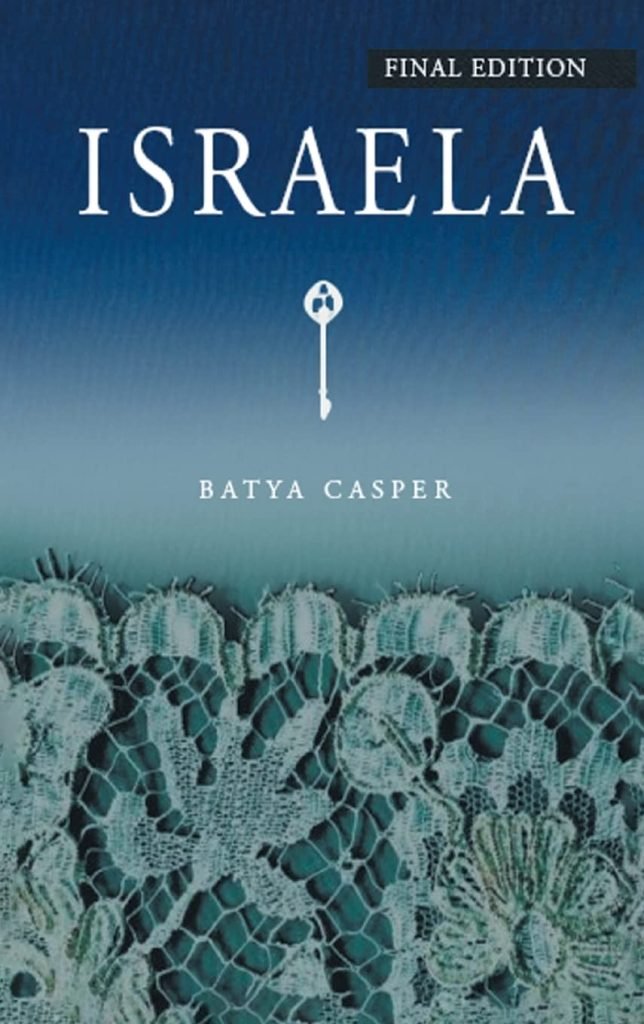
Title: Israela
Author: Batya Casper
Publisher: Inks & Bindings
ISBN: 979-8-88615-049-0
Pages: 316
Genre: Fiction / Religious
Reviewed by: Mihir Shah
book review by Mihir Shah
“What we need, is hands-on reality. People who can stop the very real blood from flowing. Not dreams. Not make-believe.”
On the surface, Casper’s narrative is a hauntingly beautiful tale of war’s toll on a land stained with the blood of its children and sown in division and hate. Probing deeper, however, the narrative explores the ferocity with which the main characters pursue peace and love, even in the face of unimaginable darkness. From heart-wrenching sacrifices to uncovering family secrets, the story takes the reader on a journey through a search for one’s identity that is inextricably tied to Israel’s valiant attempts at redemption despite the ceaseless bombardment and bloodshed on its soil.
A fusion of rich cultural heritage, Israel is a nation divided. The novel’s historical context revolves around the Israeli-Palestinian conflict and the constant tension between Israeli Arabs and the Jewish community in Israel. It is within this environment that sisters Ratiba and Orit, along with their cousin Elisheva are constantly making difficult choices to hold together a semblance of normalcy in the lives they have created. No character in this novel is flawless; their motivations can be perceived as questionable numerous times as their character arcs progress. However, the honesty in this imperfection is what makes the characters endearing and relatable. It is what allows readers to both embrace and ponder how a Jewish Israeli journalist named Ruti can take a childhood nickname given to her during her father’s lessons in Arabic and transform it into a permanent identity. This is a Ratiba who is married to Ibrahim, a professor—a Ratiba who is raising her kids and is devoutly committed to her family and Arab culture—all while severing ties to a dear sister, Orit, to keep her reality from being unmasked.
With Casper’s engaging writing style and impeccable use of imagery to evoke emotion, the audience is transposed right into the world she has created. In an environment that sometimes only understands the language of violence and war, Casper’s opening scene featuring doves, dance, and laughter, symbols of hope and peace in a place mostly bereft of it, is both captivating and ironic. Later, at the end of the Six-Day War, Casper depicts the reunification of Jerusalem through Orit’s eyes. The scene is unquestionably gratifying, with Arabs mingling with Jews and Israela’s cloak of grief temporarily coming off and revealing its true beauty in the love of Israel’s children. As the novel progresses, Casper tucks a seemingly inconsequential scene of three men in leather jackets coming to Ratiba and Ibrahim’s home from the mosque. In the course of normal conversation, it is apparent that the community is thriving and content, yet instinctively, they identify an unseen problem, stating, “Yet look what has happened. Israelis own the country.” Ratiba, in an internal monologue, provides a powerful thought which holds weight whether it be the Israeli-Palestinian conflict or any other: “wars are fought over semantics.”
What makes the author’s text so striking and notable is its ability to shift and weave perspectives seamlessly while embedding each character’s purpose within the time’s cultural, political, and even historical nuances. For example, Orit’s passion for theater cannot change her reality that she is distanced from her sister. Ratiba’s adherence to her family is unyielding. Elisheva’s nursing career and relationship with healing represent a complete evolution in character. Finally, there is Israela’s pleading for peace. Their lives are so different, yet they are unified in Israel’s tapestry. Rarely will readers come across a historical novel that captures both the comprehensive truth of history and the vulnerability of its characters with such poignant and graceful prose. Casper’s wizardry with the written word is only trumped by her intimate connection with Israel and her authentic attempt to show that Israela, an embodiment of peace and love even in the midst of hate, lives in the human spirit.
RECOMMENDED by the US Review
